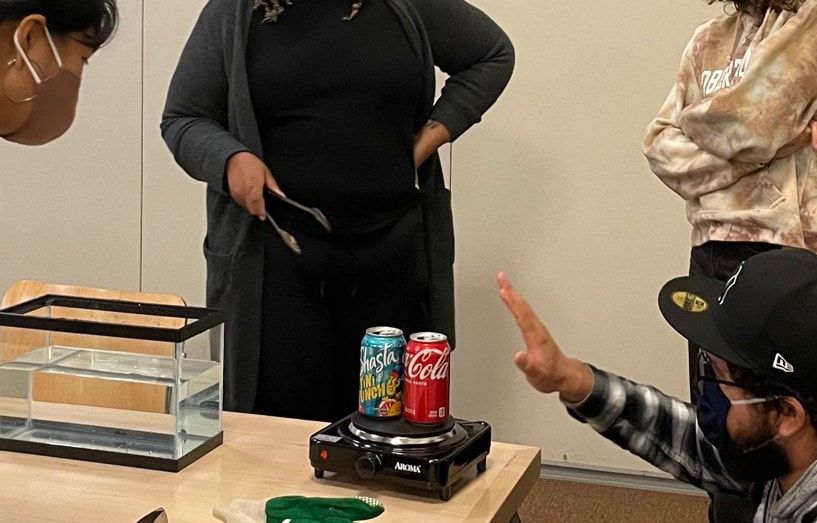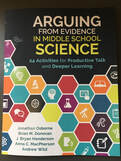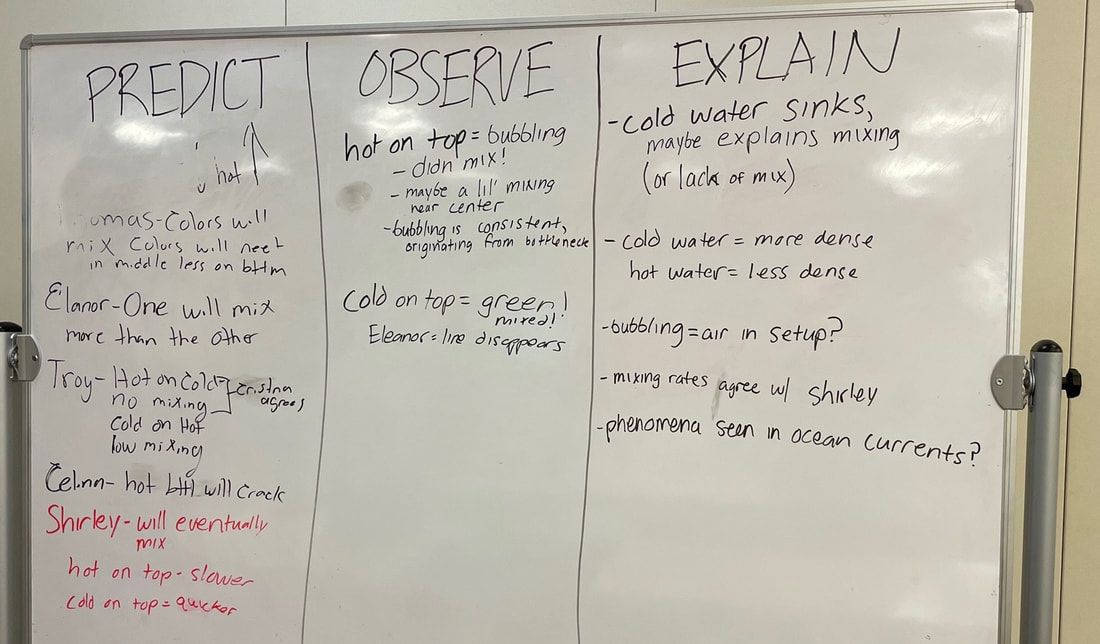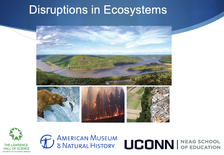|
Science instruction should be rigorous, equitable, and inclusive.
Rigorous Students are engaged in the practices of science—designing investigations, analyzing and interpreting data, and arguing from evidence—to understand complex, scientific phenomena Equitable All students have access to rigorous science instruction and have the opportunity to be successful. Inclusive Instructors are attuned to students' diverse sense-making repertoires. Students' ideas are heard and valued. |
Rigorous, equitable, and inclusive science instruction requires tools
Tools include classroom activities and routines, scaffolds for discussion and writing, and full, field-tested, NGSS-designed curricula (the dream). Below are a few tools that I have developed or use with students and teachers.
Arguing from Evidence BookThis book includes an argument for why teaching students to argue from evidence is important and a set of classroom-tested activities.
|
Thinking routines for scienceI love a good thinking routine for eliciting, working with, and assessing students' ideas in science. Click through for a couple of my favorites.
|
Disruptions in Ecosystems CurriculumThis is an NGSS-designed middle school life science unit, which includes life and Earth science content standards and SEPs of modeling, constructing explanations, and arguing from evidence.
|




